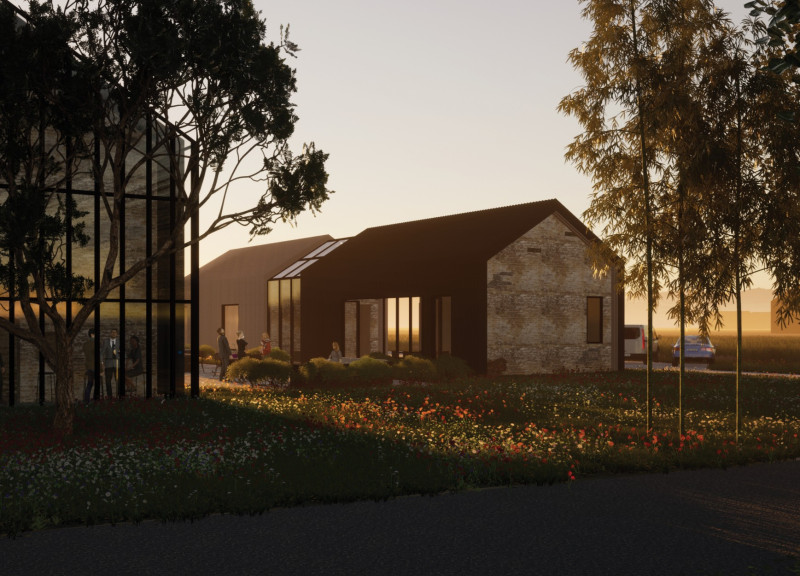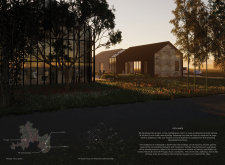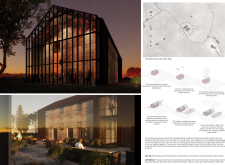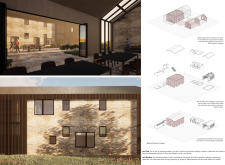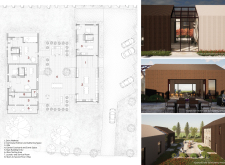5 key facts about this project
The Tili Guest Houses are situated in Umbria, near the historic towns of Perugia, Assisi, and Spello. The design combines the preservation of an existing building with new elements to create a sustainable living space. By focusing on keeping historical features intact, the project reflects a commitment to environmental responsibility while nurturing a sense of community among its residents.
Architectural Concept
The design emphasizes sustainability by maintaining existing structures instead of building anew. A large existing building remains at the core of the development, and materials are reclaimed from the dilapidated structures on site. This approach helps to reduce waste and promotes a respect for the materials and history of the area.
Structural Layout
The layout makes effective use of masonry to create views of vineyards and mountains. Glue-laminated scissor trusses and timber columns support the restored building, ensuring it is structurally sound. The original load-bearing masonry walls are strengthened with cross-laminated timber (CLT) wall and floor panels, merging modern techniques with traditional construction.
Material Reuse Strategy
An important aspect of the Tili Guest Houses involves reusing materials. Around 6000 square feet of masonry, including bricks and tiles from existing buildings, are repurposed for ground paving and facade elements. This not only maintains the site’s historical integrity but also fits well within the overall design, tying together the old and the new.
Community Integration
The design features a central brick courtyard that serves as a communal area for residents and visitors. This courtyard is framed by a second structure split into two sections designated for a villa and a collective kitchen. The use of a timber facade provides warmth and texture, creating a visual link between the main building and the new additions.
The careful blending of historic and contemporary elements results in spaces that encourage community interaction and connection, set against the scenic backdrop of Umbria.


